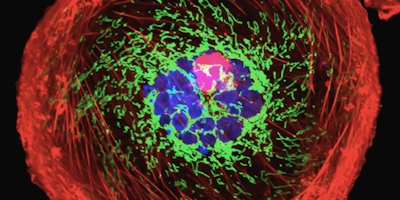Gene therapy
Gene therapy has emerged as a groundbreaking field in medicine, offering the potential to revolutionize the way we treat genetic diseases and provide personalized medicine. With its innovative approach and cutting-edge technology, gene therapy holds immense promise for the future of healthcare.
At its core, gene therapy involves the introduction, alteration, or removal of genetic material within a person’s cells to treat or prevent disease. This can be achieved through various techniques, such as delivering therapeutic genes directly into the patient’s cells or modifying existing genes to correct genetic mutations.
One of the most exciting aspects of gene therapy is its potential to treat previously untreatable genetic diseases. Conditions that were once considered incurable may now have a glimmer of hope. For example, diseases like cystic fibrosis, muscular dystrophy, and sickle cell anemia, which are caused by specific genetic mutations, could potentially be treated or even cured through gene therapy.
Furthermore, gene therapy offers the possibility of personalized medicine. By targeting specific genetic mutations or variations, treatments can be tailored to an individual’s unique genetic makeup. This approach has the potential to improve treatment outcomes and reduce the risk of adverse reactions, as therapies can be designed to specifically address the underlying cause of a disease in each patient.
However, it is important to note that gene therapy is still a relatively new and evolving field. There are challenges and considerations that need to be addressed before it can become widely accessible. These include ensuring the safety and efficacy of gene therapies, addressing ethical concerns, and navigating regulatory processes for approval.
Despite these challenges, the potential of gene therapy cannot be ignored. The advancements in technology and our understanding of genetics have paved the way for this game-changing approach in medicine. As researchers continue to explore and refine gene therapy techniques, we can expect to see more breakthroughs and success stories in the coming years.
For pharmacists, medical doctors, and pharmaceutical companies, staying informed about the latest developments in gene therapy is crucial. Understanding the potential of gene therapy and its implications for various diseases can help guide treatment decisions and inform research and development efforts.
Investors interested in pharmaceutical company stocks should also keep an eye on the gene therapy landscape. As the field continues to grow and gain momentum, companies involved in gene therapy research and development may present attractive investment opportunities.
In conclusion, gene therapy has the potential to be a game-changer in medicine. Its ability to treat genetic diseases and provide personalized medicine holds immense promise for the future of healthcare. While there are challenges to overcome, the advancements in technology and our understanding of genetics make gene therapy an exciting field to watch. Stay informed, stay curious, and be prepared for the potential of gene therapy to reshape the medical landscape.


